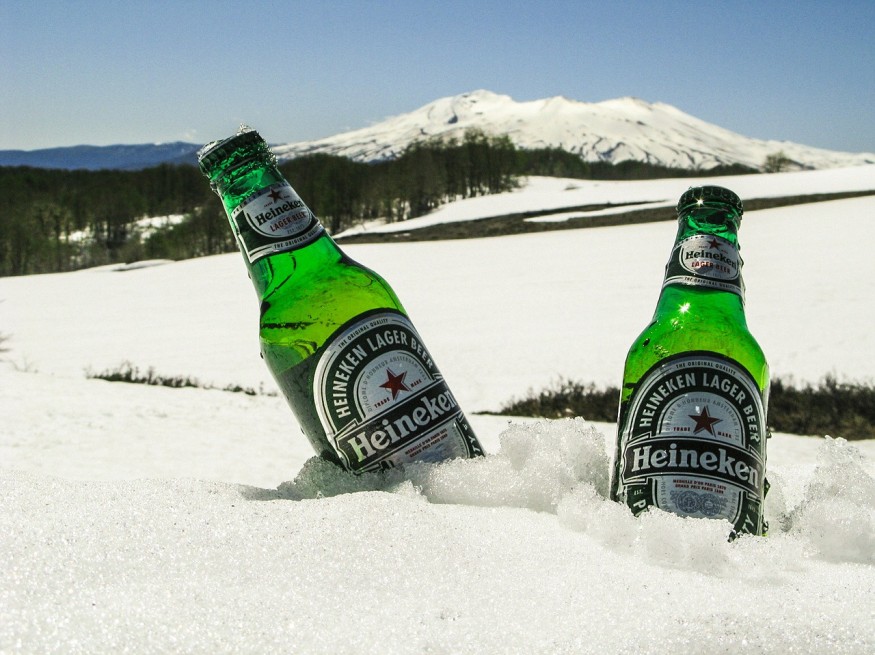
Heineken is ditching single-use plastic shrink wrap and rings from their multipack cans in the United Kingdom. The packaging, according to the firm, would be substituted with environmentally-friendly cardboard.
Around £22 million (approximately US$28.1 million) worth of production facilities and new technology was invested by the Heineken Company at its sites in the United Kingdom. The investments would enable the Dutch company to roll out developments across its popular brands, including Foster's and Kronenbourg 1664, in April 2020.
The big firm underscored introducing eco-friendly materials would reduce the carbon emissions linked with producing multipack cans by one third. Changes will be first seen across Kronenbourg 1664, Foster's, and Heineken. John Smith's, Strongbow, Red Stripe, and Bulmers will follow at the end of 2021.
Sturdy, recyclable cardboards would be used by the "toppers" to carry the weight of the multipacks. More than 500 tonnes of plastics from the brand packaging would be removed to Heineken's products in the United Kingdom next year.
According to Cindy Tervoot, Heineken's marketing chief, the latest step of their company is what their customers want and expect. She said in a news report that Heineken has been working on the innovation for three years.
Heineken made an "interesting" move, says environmentalist
A Marine Conservation Society spokesperson told The Guardian that Heineken's development is "interesting." The spokesperson added the step would help reduce the number of plastics on the beaches and seas.
Plastic pack rings, commonly known as hi-cones or yokes, are used to keep multipacks of canned drinks, particularly beer, together. The spokesperson from the Marine Conservation Society said those types of discarded can yokes are found on beach cleans.
A standard packaging device has contributed to growing sea pollution and poses a threat to marine life. According to researchers, plastic devices take more than 50 years to decompose.
Heineken also promised to "[support in collecting] and process more plastic packaging than it sells."
Supermarkets, manufacturers take steps in growing plastic packaging pollution.
Following the BBC One's Blue Planet II series which highlighted worldwide marine litter, supermarkets and manufacturers took significant steps to solve the issue amid consumer backlash over plastic packaging.
Carlsberg replaced rings with recyclable glue last year as their quest to search for an alternative. Plastic packaging from Rockshore and Smithwick's, Guinness and Harps had been phased out by Diageo and replaced the packaging with cardboard packs.
Budweiser began phasing out single-use synthetic pack rings from its entire range of UK-produced beer in September and aims to be "eco-friendly" by the end of 2020.
Tesco, U.K.'s leading supermarket, aims to remove more than a billion pieces of plastic from its own products in their U.K. stores by the end of 2020. The supermarket also removed all its products containing microbeads in 2016.
Unilever, whose brands include Lipton, Dove, and Ben & Jerry's, announced its plans to reduce its use of virgin plastic to half by 2025. The firm said it would accomplish its goal by skipping its "total use of plastic package" by over 100,000 tons and "expediting its use of recycled plastic."
© 2026 NatureWorldNews.com All rights reserved. Do not reproduce without permission.





